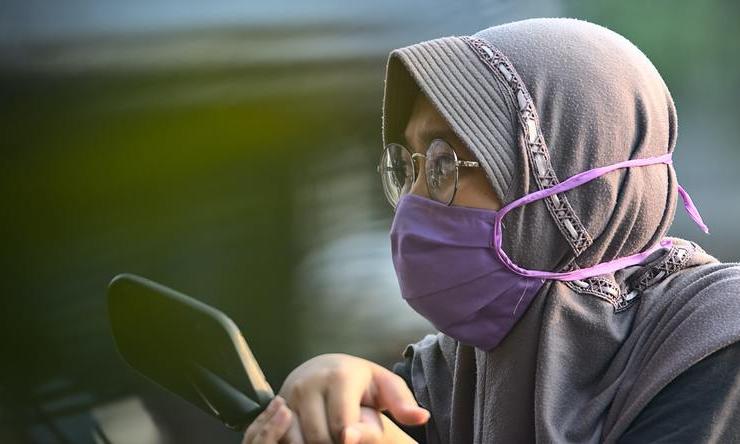Avoid face irritation, acne while wearing masks
The COVID-19 pandemic has brought about many changes to people’s lives, including wearing a protective face mask while out in public in some cities. Although wearing a non-medical grade face mask is an important way to keep the virus from spreading, it is possible that the mask can cause skin irritation and acne breakouts, according to a dermatology expert at Baylor College of Medicine.
“Your skin barrier helps protect you in many ways, but friction, rubbing and sweat trapped underneath a mask can cause the skin barrier to break down,” said Dr. Rajani Katta, a dermatologist and clinical assistant professor at Baylor. “Whenever you get an impairment of the skin barrier, you may start to see irritation or irritant dermatitis. It can cause redness, marks and flaking skin. For some people, those same factors can trigger acne.”
Katta offers tips on how to avoid irritating or breaking out your skin while wearing protective masks:
Find the right fabric
“One of the most important things to pay attention to is the fabric that you are using, because that can make a big difference,” she said.
If you are prone to acne, Katta recommends avoiding masks made of fabrics like polyester that tend to trap sweat underneath. Using a mask with an inner layer made from an absorbent material such as cotton can help absorb sweat and is less likely lead to breakouts.
For sensitive skin, avoid fabrics with a rough texture that can cause irritation. If you are making your own masks, Katta suggests using a softer fabric for the inner layer of the mask that is against the skin.
“The outer layer can be a thicker weave to provide more protection from microbes, while the inside is a softer fabric,” Katta said. “A lot of the instructions for homemade masks say that layers may be more helpful in terms of providing protection from microbes, but that might also be a strategy to help protect your skin.”
Be careful with products
If you have dry or sensitive skin, prepping your skin with moisturizer before wearing a mask may help fight irritation, Katta said. On the other hand, if you are acne prone, she recommends avoiding certain kinds of makeup or products that are thick and greasy, like foundation.
“These products can get trapped under the mask and possibly cause more skin issues,” Katta said.
If you choose to wear makeup or a skin care product, double check to be sure it is non-comedogenic so that it does not clog your pores.
Alternate or wash masks
It is essential to avoid reusing the same mask to stop the spread of germs, but it can also have an effect on the skin. For reusable fabric masks, Katta recommends frequently washing them in hot water after wearing them, and making several so you can rotate them.
“It is important to launder masks on a regular basis since they are going to collect sweat and microbes that are sitting on your skin,” Katta said. When washing masks, Katta said to avoid detergent or dryer sheets with fragrance and additives that could irritate the skin.











